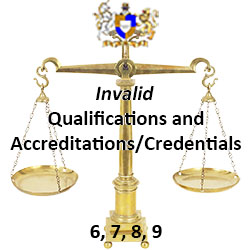Training as a Coach and/or a Mentor
 When a student is looking for a course and/or workshop to train as a coach and/or mentor; or to add to their existing skills and knowledge: the Ombudsman Service recommends that the student verifies:
When a student is looking for a course and/or workshop to train as a coach and/or mentor; or to add to their existing skills and knowledge: the Ombudsman Service recommends that the student verifies:
- not only the status, quality, and reputation of the Private Commercial Training Organisation (Note 2);
but also - the ‘knowledge and experience (Note 2)’ of the course creator,
- the ‘competence (Note 1)’ of the trainers,
- as well as the professionalism of the accrediting/credentialing Professional Body.
.
To understand the status, quality, and reputation of the Private Commercial Training Organisation, the consumer must verify that:
- the Private Commercial Training Organisation is REGISTERED on the IRCM CIC’s Education Directory.
- the Private Commercial Training Organisation has gained an independent verification (accreditation or credential) from one or more IRCM CIC REGISTERED or ACCREDITED Professional Bodies. (Formal Education Bodies are verified by their own countries Education Department)
- the course and/or workshop has gained an independent verification (accreditation or credential) from one or more IRCM CIC REGISTERED or ACCREDITED Professional Bodies. (Formal Education Bodies are verified by their own countries Education Department)
- that the trainers have the right level of qualification (both in the topic and in their ability to train), knowledge, and experience, and
- are REGISTERED on the IRCM CIC’s Coaches and Mentors Directory, and
- have been independently verified by an industry-specific Professional Body.
For example, NLP trainers must be members of and recognised as a trainer by, an internationally recognised NLP Professional Body.
- the end result of the course/workshop is a qualification (Note 1) and not an accreditation (Note 1).
.
To determine ‘competence’, the Consumer should confirm that the coach and/or mentor who is training, is:
- REGISTERED on the IRCM CIC’s Coaches and Mentors Directory and
- ACCREDITED/CREDENTIALED by one or more IRCM CIC REGISTERED or ACCREDITED Professional Bodies and
- is recognised as a recognised and professional trainer and not just a coach and/or mentor.
This is specifically important in the NLP world where NLP trainers must be members of and recognised as a trainer by, an internationally recognised NLP Professional Body.
.
Notes:
- The definitions for industry-standard terminology can be found on the IRCM CIC’s Coaching and Mentoring industry recognised Definitions.
- Although this Case Study is related to a Private Commercial Training Organisation, the recommendations also relate to the Formal Education Bodies.
.
.
.
Currently, all information provided by and correspondence with the IRCM CIC is in English.
